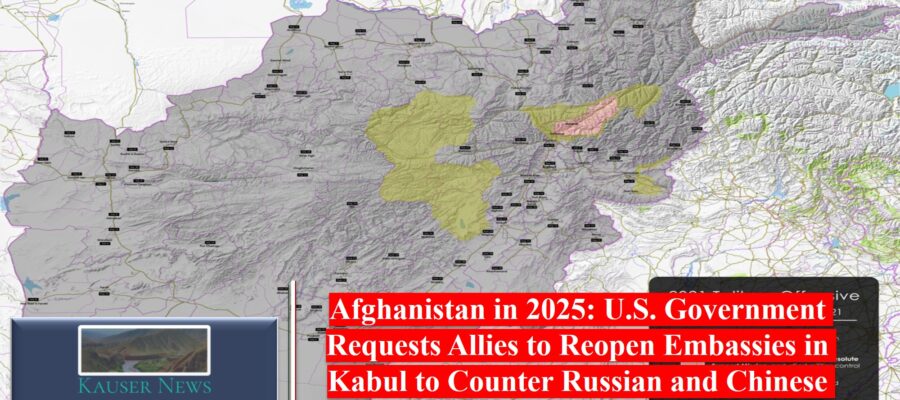Kauser News Agency Protects Sources
Kauser News Agency is committed to protecting the anonymity of its sources. The agency’s policy is to never release the names of people who provide information to the Agency unless they specifically authorize the agency to do so.
Five years after the Taliban took control of Afghanistan, the country is in the midst of a humanitarian crisis. The economy has collapsed, millions of people are living in poverty, and the security situation is deteriorating.
The Taliban has imposed harsh restrictions on women and girls, banning them from attending school and work in many cases. There have also been reports of human rights abuses, including summary executions and forced marriages.
The international community has been slow to respond to the crisis in Afghanistan. The United States has frozen billions of dollars in Afghan assets, and many countries have withdrawn their aid. This has made it difficult for the Taliban to provide basic services to the Afghan people.
There is no easy solution to the crisis in Afghanistan. The Taliban will need to make significant concessions in order to win the support of the international community. The United States and its allies will also need to provide more humanitarian aid and economic assistance.
If the crisis is not addressed, Afghanistan could become a breeding ground for terrorism. The Taliban has already shown that it is willing to harbor terrorists, and the country’s porous borders make it easy for militants to cross into neighboring countries.
Afghanistan is facing a number of challenges, including the Taliban’s rule, the humanitarian crisis, and the threat of terrorism. However, there is still hope for Afghanistan. The Afghan people are resilient, and they have shown a willingness to fight for their country. With the right support, Afghanistan can overcome its challenges and build a brighter future.
Sources confirmed that the challenges facing Afghanistan in 2025:
- Economic collapse: The Afghan economy has collapsed since the Taliban took control in 2021. The country is now heavily reliant on foreign aid, and there is a shortage of food, medicine, and other basic necessities.
- Humanitarian crisis: Millions of Afghans are living in poverty, and the country is facing a major humanitarian crisis. The United Nations estimates that 24.4 million people need humanitarian assistance, and 9 in 10 Afghans are living below the poverty line.
- Security situation: The security situation in Afghanistan is deteriorating. The Taliban is carrying out attacks against civilians and government forces, and there is a growing risk of civil war.
- Women’s rights: The Taliban has imposed harsh restrictions on women and girls. They have banned women from attending school and work in many cases, and they have forced women to cover their faces in public.
- Terrorism: Afghanistan is a major hub for terrorism. The Taliban has links to al-Qaeda, and the country’s porous borders make it easy for militants to cross into neighboring countries.
The Taliban has imposed harsh restrictions on women and girls, banned them from attending school and work in many cases, and forced women to cover their faces in public. They have also been accused of human rights abuses, including summary executions and forced marriages.
The Taliban’s rule has also led to a humanitarian crisis. The economy has collapsed, millions of people are living in poverty, and there is a shortage of food, medicine, and other basic necessities.
The security situation in Afghanistan is also deteriorating. The Taliban is carrying out attacks against civilians and government forces, and there is a growing risk of civil war.
If the Taliban does not bring reform to the system, Afghanistan is likely to become a failed state, with widespread poverty, violence, and instability. This would pose a serious threat to regional security and could lead to the rise of terrorism.
“The United States government has requested that its allies reopen their embassies in Kabul, Afghanistan, in an effort to counter Russian and Chinese influence in the country. The U.S. intelligence community has warned that Afghanistan is facing its worst challenges since the Taliban took control in 2021 and that Russia and China are seeking to expand their influence in the country.“
The U.S. Embassy in Kabul was closed in August 2021, shortly after the Taliban took control of the city. The U.S. government has since maintained a small presence in Kabul through a diplomatic mission at the airport. However, the U.S. government has said that it needs to reopen its embassy in order to have a more effective presence in Afghanistan and to counter Russian and Chinese influence.
Russia and China have both been courting the Taliban since they took control of Afghanistan. Russia has provided the Taliban with financial and military assistance, and China has offered to invest in Afghanistan’s economy. The U.S. government is concerned that Russia and China are seeking to use their influence in Afghanistan to undermine U.S. interests in the region.
The U.S. government’s request to its allies to reopen their embassies in Kabul is a sign of the growing concern about the security situation in Afghanistan. The U.S. government is hoping that by having a more visible presence in Afghanistan, it can deter Russia and China from further expanding their influence in the country.
The Implications of a U.S.-led Reopening of Embassies in Kabul
The implications of a U.S.-led reopening of embassies in Kabul are significant. First, it would signal to the Taliban that the international community is not abandoning Afghanistan. Second, it would provide the U.S. government with a more effective platform to counter Russian and Chinese influence in the country. Third, it would help to stabilize the Afghan government and economy.
there are also some risks associated with a U.S.-led reopening of embassies in Kabul. First, it could be seen as a sign that the U.S. is returning to Afghanistan, which could lead to an increase in violence. Second, it could make the U.S. a target for terrorist attacks. Third, it could complicate the U.S.’s withdrawal from Afghanistan.





